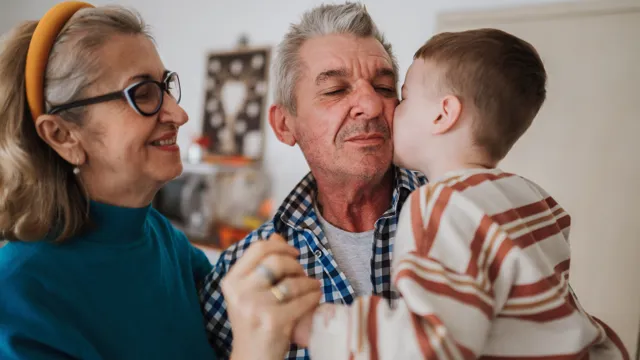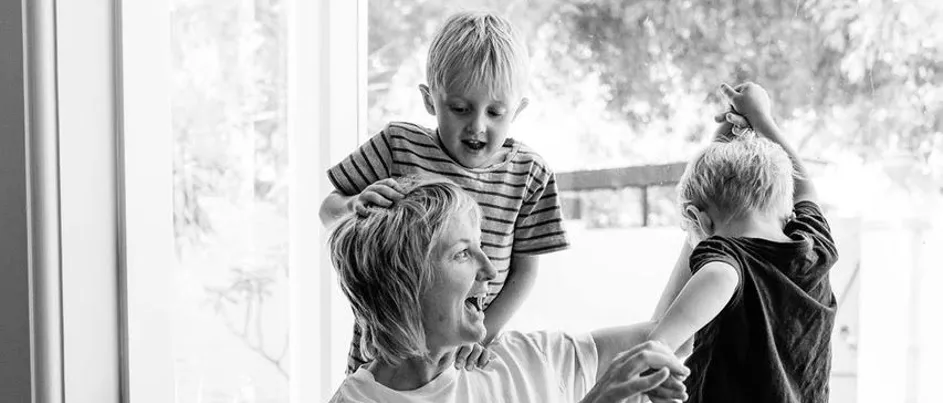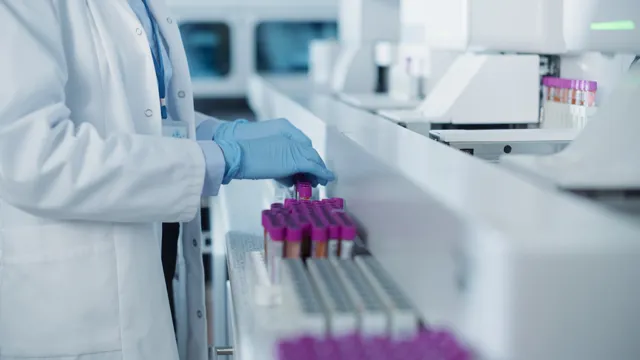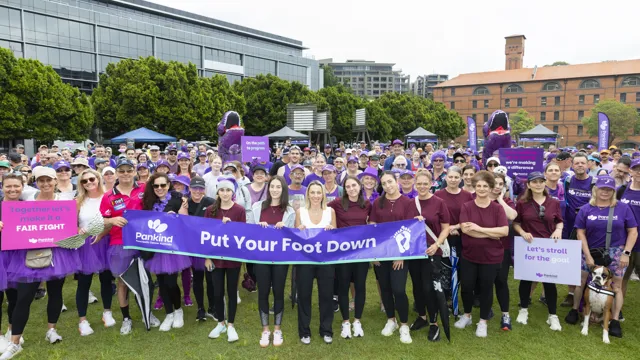

Charlene Yates and her 2 sons Billy (4) and Lachie (3), Photo Credit: Felicity Found
My story
I lost both of my parents to pancreatic cancer.
My dad, Bill, died when I was just five years old. As a little girl, I was protected from the harsh reality of his diagnosis and treatment. But the second time pancreatic cancer entered our lives, I wasn’t a child anymore. I was 30, and it was my mum, Audrey. I was with her for every moment: the diagnosis, the disbelief, the grief, and the 13 months that followed.
Two parents. The same cancer. Diagnosed 25 years apart, and yet, nothing had changed. The same poor prognosis. The same limited treatment options. Mum was given three to six months. She lived for thirteen, and every day of that time was precious.
We were fortunate to have the support of a community palliative care service that helped me nurse Mum at end of life and grant her final wish of dying at home, surrounded by love. But even now, 14 years since losing Mum, and 40 years since Dad, I carry that loss.
And now, I’m a mum too. My two beautiful boys, Billy (4) and Lachie (3), never got to meet their maternal grandparents. That alone fuels my determination to change the story.
What do you do when it’s in the family?
Naturally, I’ve asked myself the question no one wants to face: will pancreatic cancer strike a third time?
That’s why I turned to experts to understand if I could be at inherited risk. It was a confronting process but also empowering. I didn’t just want to wonder anymore —I wanted answers.
This led me to explore genetic testing and eventually I enrolled in a high-risk screening program. I didn’t do it out of fear. I did it because knowledge is power. Because if I could catch something early, before symptoms appear, I’d give myself the best chance.
Not everyone who takes the test is at risk. And even if you are, it doesn’t mean you’ll develop pancreatic cancer. But knowing gives you options. Control. Peace of mind.
Screening and surveillance: a big decision with bigger rewards
After testing, I decided to start a surveillance program, it’s not a decision I took lightly. Surveillance means regular MRIs or ultrasounds. It means managing the emotional toll of constant check-ups and holding your breath for results.
But for me, the benefits far outweigh any anxiety.
Pancreatic cancer is often detected too late. Early detection could mean the difference between hope and heartbreak. By being part of a surveillance study, I’m not only giving myself the best chance of survival, I’m contributing to data and research that may change the future for others.
It’s not just in the genes
While 10% of pancreatic cancers are hereditary, the majority aren’t. Lifestyle factors like smoking, diet, alcohol, obesity and diabetes also play a role.
For me, this journey became a reminder to look after my health as a whole. I can't change my genes, but I can take steps to reduce other risks. I can eat better, move more, stress less. It’s not about guilt—it’s about choice.
How I spoke to my kids about it
Perhaps the hardest part of this journey has been figuring out how I will talk to my sons about risk, without passing on fear.
They are still very young but when they are older, I will explain it like this:
There might be sharks in the ocean, but that doesn’t mean we stop swimming. We just learn where they are, how to spot them, and what to do if one shows up.
We still swim. We still live. But we live with knowledge, and we teach our children how to be prepared, not afraid.
A message of hope and action
I’ve been a proud supporter and volunteer with Pankind since 2017. I’ve raised funds, walked in purple at the Put Your Foot Down Walk, and shared my story more times than I can count.
I now know through genetic testing that despite having two close relatives diagnosed with PC, I don't have any known genes that increase my risk. This has been so empowering to know but my journey doesn't end here. I continue to be proactive about my health and passionately advocate for better early detection.
If pancreatic cancer has touched your life, directly or indirectly, please know this: there is support, there is progress, and there is something you can do.
👉 Take the Family History Checker
👉 Talk to your GP about genetic testing
👉 Join the movement for better research and early detection
We can’t change the past. But we can shape a future where no family has to go through what mine did, not without support, not without options, not without hope.


